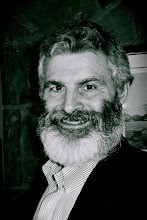The productivity of public capital
[Does this qualify as an oxymoron?]
The term ‘productivity’ is often assumed to apply
mainly to labour.
The term ‘capital’
appears synonymous with “investments made”.
In business, ‘ROI’ stands for “return on
investment”. A businessman, contemplating an investment decision, will carefully assess the prospect of an acceptable ROI in making that decision. In some
circumstances, the businessman may even have several investment options, and will compare and select the best based on prospective ROI.
An investment decision may require several ‘inputs’,
or “factors of production”, in order for the investment to achieve its ROI. For
example, investments in computer systems are considered "capital investments",
and are normally made in order to leverage greater, more profitable ‘outputs’ from labour in the production process. In this
case, the various 'inputs' would include the money spent on the equipment, the
salaries and benefits paid to the employees, as well as the cost to train the
employees on the new productivity-enhancing technology. Lets label these inputs as: return on capital [ROC], return on training [ROT], and
return on employee compensation [ROEC].
In government, the concepts of 'profit' and 'loss' rarely come
into play when considering investment decisions. The ROEC remains fixed under
the terms of union contracts and every union employee will receive the same level of position-related, seniority-adjusted compensation irrespective of individual employee 'output' performance. The ROT is never
discussed or measured and, along with capital spending, they are both simply assumed to be the cost of
running the government operation. In essence, the ROC is of little interest to public service managers; they are more interested in increasing the size of their future budgets than
measuring productivity returns from past capital spending.
Why do these different views of investments exist
between business and government?
Government leaders are always referring to the "investments" they have made on behalf of all citizens yet when was the last time one of these leaders reported on their actual, measurable ROI? Never!
Do government leaders not expect greater productivity with investment such as these, or do they simply pay lip service to these concepts?
Government leaders are always referring to the "investments" they have made on behalf of all citizens yet when was the last time one of these leaders reported on their actual, measurable ROI? Never!
Do government leaders not expect greater productivity with investment such as these, or do they simply pay lip service to these concepts?
Of course, this conundrum is not new and these
differences are unlikely to ever change without substantial changes in our
democratic institutions and the governance of their operations.
However, by contemplating the "productivity of public capital" [or lack thereof] , it reinforces the Ontario Libertarian Party's belief that much of
government operations should be privatized. One thing is clear: the productivity
of public capital spending will never match the productivity of private capital
spending.
